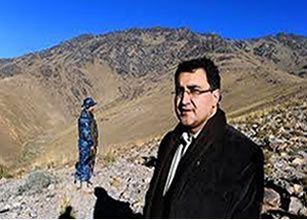The Afghan government has put its Hajigak iron ore deposit back up for tender, after taking it off the market last year.
Officials are promising security for investors despite a worsening insurgency in the country. Mines Minister Wahidullah Shahrani said he hoped production would start by 2014 on what he said was a huge, high-quality ore vein, that offered investors a rare opportunity with reserves estimated to be worth as much as US$350 billion. Potential investors are said to be particularly concerned about the security situation in the country. The insurgency is generally agreed to be at its most violent since the 2001 overthrow of the Taliban government.
The Hajigak deposit straddles Bamiyan, Parwan and Wardak provinces. Only Bamiyan is considered relatively peaceful. But Shahrani insists security should not put investors off. He has pointed to the Aynak copper mine, south of the capital, developed by Chinese firms since 2008 and worth about US$43 billion, as evidence that Afghanistan can protect its assets.The government has a specially trained force to protect mines and other infrastructure, with many of its members drawn from villages surrounding the asset under guard.
Shahrani predicts the mine will generate at least 7,000 direct, long-term jobs and many thousands more working in spin-off industries like services, construction and logistics. Expressions of interest are expected by mid-January, and Shahrani hopes to award the tender in August 2011, with at least two more years of detailed exploration to follow. Kabul is expected to generate between US$300 and US$400 million a year from the mine once it reaches full production of an estimated 10 million tonnes a year.
The deposit was first discovered by British geologists in the 1890s, and mapped in more detail by Russians in the 1960s, who estimated it held some 1.8 billion metric tonnes of ore. But decades of unrest means an estimated 62 per cent iron has not been exploited commercially. A planned tender last year was cancelled, with the ministry citing the global recession and changes in the world market structure for iron as the key problems, although it came months after corruption allegations around the sector in Afghanistan. Shahrani has promised to run a clean bidding process, with much of the documentation posted on the ministry's website.






